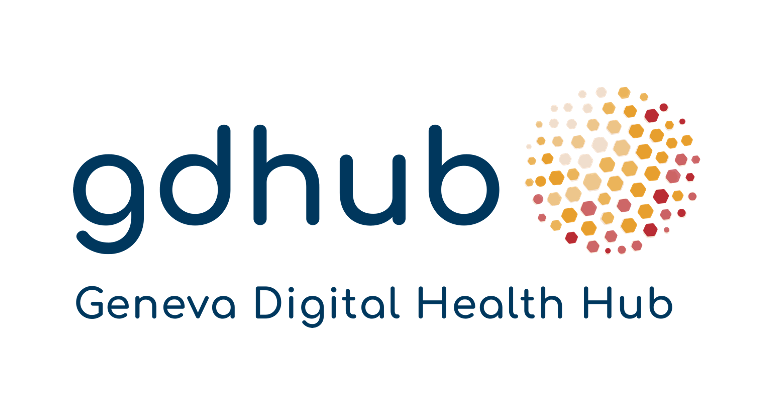
- This event has passed.
WSIS: Global Strategy on Digital Health
March 17, 2023 @ 10:30 am - 11:30 am
The role of the Global Strategy on Digital Health 2020-2025 in strengthening country’s autonomy in fast tracking UHC and the health related SDGs.
The Global Strategy on Digital Health 2020-2025
In July 2018, the Secretary-General convened a High-level Panel on Digital Cooperation to advance proposals to strengthen cooperation in the digital space among Governments, the private sector, civil society, international organizations, academic institutions, the technical community and other relevant stakeholders.[1] The ‘Report of the Secretary-General Roadmap for Digital Cooperation’ published in June 2020, subsequently highlighted five sets of recommendations from the Panel on how the international community could work together to optimize the use of digital technologies and mitigate the risks:
1. Build an inclusive digital economy and society;
2. Develop human and institutional capacity;
3. Protect human rights and human agency;
4. Promote digital trust, security and stability;
5. Foster global digital cooperation.
To achieve this, the Panel recommended eight areas of focus (Global connectivity; Digital Public Goods; Digital inclusion; Digital capacity building; Digital human rights; Artificial intelligence; Digital Trust and Security; Global Digital Cooperation) and a way forward with the United Nations as a convener and platform.
In the same year, WHO Member States endorsed a Global Digital Health Resolution to foster the transformation agenda of ICTs and emerging technologies in health. The resolution resulted into a request to develop a global strategy on digital health. Endorsed by the Seventy-third World Health Assembly in the 2020, the Global Strategy on Digital Health 2020-2025 outlined four strategic objectives (SO) aimed to support countries accelerate their digital health transformation leveraging some of these areas of focus.[2]
In ‘SO1 – Promote global collaboration and advance the transfer of knowledge on digital health’, WHO is building capacity through competency-based trainings and leveraging experiences of countries undergoing digital health transformation to inspire, guide, inform, share knowledge, and strengthen collaboration with other countries. Under this objective, WHO is developing tools and approaches such as the SMART Guidelines – a new approach to systematize and accelerate the consistent application of recommended, life-saving interventions articulated through WHO guidelines in the digital age. Standards-based, Machine-readable, Adaptive, Requirements-based, and Testable (SMART) Guidelines are a comprehensive set of reusable digital health components (e.g., interoperability standards, code libraries, algorithms, technical and operational specifications) that transform the guideline adaptation and implementation process to preserve fidelity and accelerate uptake.
Under ‘SO2 – Advance the implementation of national digital health strategies’, WHO and its partners are working to support countries to own, adapt and strengthen their national digital health strategies in a way that best suits each individual country’s vision, national context, health situation and trends, available resources and core values. This work is guided by the roadmap for national digital health transformation highlighted in and monitored through the Digital Health Observatory where countries will soon be able to once again access knowledge assets and practical information to learn, collect and share evidence to accelerate digital health transformation. Under this SO, the Department for Digital Health and Innovation works to strengthen the capacity of countries to lead, monitor and have autonomy over their digital health transformation journey.
In ‘SO3 – Strengthen governance for digital health at global, regional and national levels’, WHO and partners are working towards harmonizing communities of practice (CoP), creating sustainable common frameworks, tools, principles and values, standards, and ethics to promote the appropriate use of digital technologies as digital public goods (DPGs) in addressing key health system challenges and ultimately ensure no one is left behind. Governance for digital health aims to strengthen the capabilities and skills needed for countries (e.g. policy makers, practitioners) to promote, innovate and scale up digital health technologies and promote standards for safety, security, privacy, interoperability, and the ethical use of data within and outside the health sector.
‘SO4 – Advocate people-centred health systems that are enabled by digital health’ places people at the centre of digital health through the adoption and use of digital health technologies in scaling up and strengthening health service delivery through means such as telehealth. Further An examples of this is the Digital Clearinghouse which serves as a knowledge hub and resource library connecting country governments with proven digital health solutions and enabling solution developers to have clear guidelines and gain credibility for the solutions that they develop. Through its function as a resource library, the Digital Clearinghouse complements the earlier mentioned digital health resources such as the SMART Guidelines.
The Global Strategy on Digital Health 2020 – 2025 has since served as a framework to align and guide all the support provided by WHO and ITU to Member States on digital health transformation. However, during the COVID-19 pandemic, the world saw an unpresented need and demand for digital technologies to strengthen health outcomes as well as the related capacity and infrastructure needed to support the scaling up of these. The global and national response to the COVID-19 pandemic accelerated the demand for digital transformation within global health, but as such, also increased demand for capacity, governance, and infrastructure to sustain the transformation in the long-term.
Session objective
This session will bring together perspectives from Member States (Zambia), development partners (PATH/Digital Square), ITU and WHO to reflect on and discuss how the Global Strategy on Digital Health 2020-2025 strengthens country’s autonomy in meeting national needs and priorities to achieve UHC and health related SDG targets. Areas which will be explored include, but are not limited to, Digital Public Goods; Digital Capacity Building; and Global Digital Cooperation.
[1] Report of the Secretary-General Roadmap for Digital Cooperation. United Nations. 2020.
[2] Global strategy on digital health 2020-2025. Geneva: World Health Organization; 2021. Licence: CC BY-NC-SA 3.0 IGO
